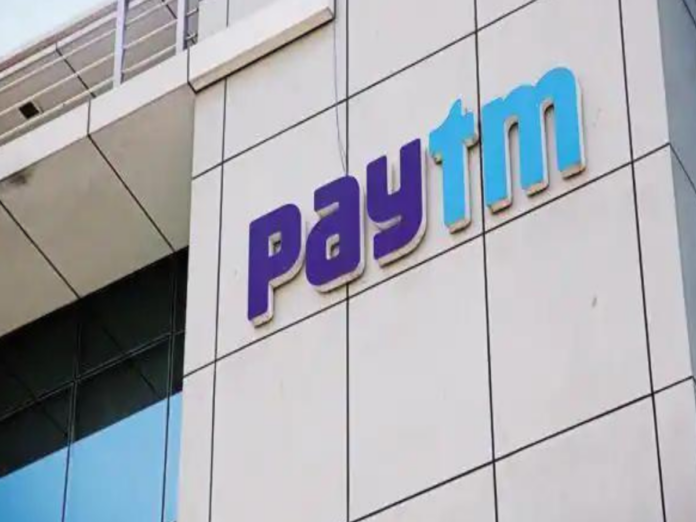Paytm Receives NPCI Approval to Onboard New UPI Users: A Path to Recovery Amid Regulatory Challenges
On October 22, Paytm’s parent company, One 97 Communications Ltd, announced that it received approval from the National Payments Corporation of India (NPCI) to onboard new Unified Payments Interface (UPI) users. This approval marks a crucial milestone for Paytm after months of restrictions imposed by regulatory authorities.
The NPCI’s approval comes with several conditions, ensuring that Paytm adheres to strict guidelines across multiple areas of operation. The company must comply with NPCI’s standards related to risk management, brand guidelines for both its app and QR code systems, multi-bank guidelines, Third Party Application Provider (TPAP) market share, and the management of customer data. The NPCI emphasized that all of these regulations must be followed for Paytm to continue its UPI services smoothly.
Earlier this year, Paytm was dealt a significant blow when the Reserve Bank of India (RBI) imposed restrictions on its associate company, Paytm Payments Bank Limited (PPBL), preventing it from onboarding new UPI users through the Paytm app. These restrictions, imposed in January and February 2024, disrupted the company’s UPI services, as PPBL was a key component in Paytm’s UPI infrastructure. PPBL had been acting as Paytm’s primary payment service provider (PSP), facilitating seamless integration between the UPI system and the banking network.
The RBI’s actions necessitated a significant shift in Paytm’s approach. The company was forced to pivot to a third-party app model for its UPI services, which meant it could no longer rely solely on PPBL to power its UPI transactions. Instead, Paytm had to form partnerships with several other leading banks, including Axis Bank, Yes Bank, State Bank of India (SBI), and HDFC Bank, to act as its PSP banks. These PSP banks play a crucial role in connecting UPI apps with the banking network, ensuring that transactions flow smoothly between users and their respective banks. While PPBL had previously served as Paytm’s exclusive PSP partner, the company’s UPI infrastructure now had to rely on multiple banking partners to continue offering UPI services to its users.
This transition to a third-party app model was not without its challenges. As Paytm integrated with these new PSP banks, the company likely experienced disruptions in its operations, particularly in onboarding new UPI users. These disruptions may have resulted in a decline in Paytm’s UPI market share during the transition period. Paytm, which once held a significant share of the UPI market, faced increased competition from other UPI providers like Google Pay, PhonePe, and others that were not burdened with similar regulatory restrictions.
The decision to switch to multiple PSP banks, while necessary, may also have introduced additional complexities in managing its UPI services. Unlike when it had a single PSP partner in PPBL, working with multiple banks requires more coordination, particularly in areas such as compliance, transaction processing, and risk management. Each bank has its own set of protocols, systems, and operational guidelines, adding layers of complexity to Paytm’s UPI infrastructure.
Despite these challenges, Paytm remains committed to regaining its foothold in the UPI market. With NPCI’s recent approval, Paytm can now actively work on onboarding new users, expanding its customer base, and regaining lost ground. The company’s partnerships with prominent banks like Axis Bank, Yes Bank, SBI, and HDFC Bank position it well to continue offering robust UPI services in the future.
Paytm’s UPI journey has always been a critical part of its larger strategy. UPI services, being a major growth driver in India’s digital payments ecosystem, represent an essential revenue stream for Paytm. The company’s ability to process fast, secure, and seamless UPI transactions has been key to attracting and retaining users on its platform. With NPCI’s approval and the resumption of new UPI user onboarding, Paytm is poised to enhance its UPI offerings and strengthen its position in India’s competitive digital payments landscape.
The approval from NPCI comes at a time when Paytm is striving to increase its presence in the financial services sector. Apart from UPI, Paytm has been aggressively expanding its product portfolio in digital banking, lending, and wealth management services. Its ambition to become a one-stop shop for all financial services makes its UPI offerings even more critical, as UPI remains one of the most widely used payment methods in India.
Moving forward, the company will need to focus on restoring user confidence, ensuring regulatory compliance, and executing its growth strategy effectively. While the recent months may have seen Paytm’s UPI market share shrink, the NPCI’s green light offers a significant opportunity for Paytm to re-establish itself as a major player in India’s UPI ecosystem. The partnerships with leading banks will provide a solid foundation for Paytm’s UPI services, allowing the company to offer secure, reliable, and innovative payment solutions to its users.
In conclusion, Paytm’s road to recovery in the UPI market is set to gain momentum following NPCI’s approval to onboard new users. Despite the challenges posed by the RBI’s restrictions and the transition to a multi-bank model, Paytm’s strategic partnerships with top banks, combined with its commitment to adhering to NPCI’s stringent guidelines, will likely help the company regain its competitive edge in the rapidly evolving digital payments landscape.


